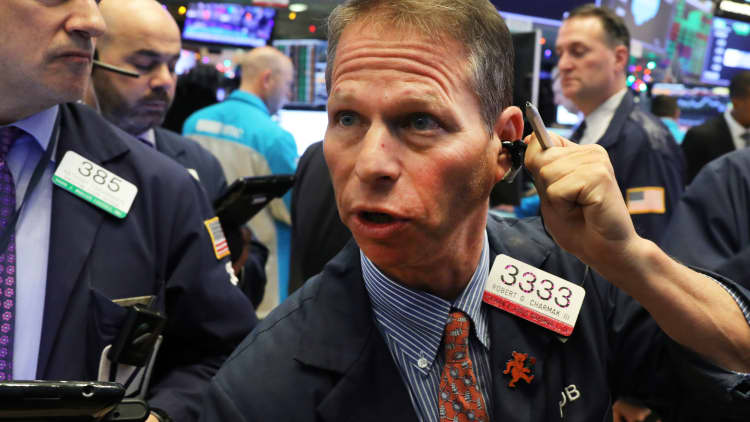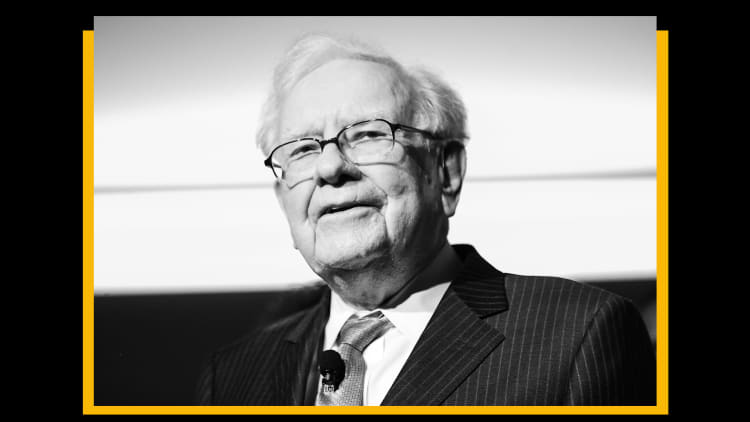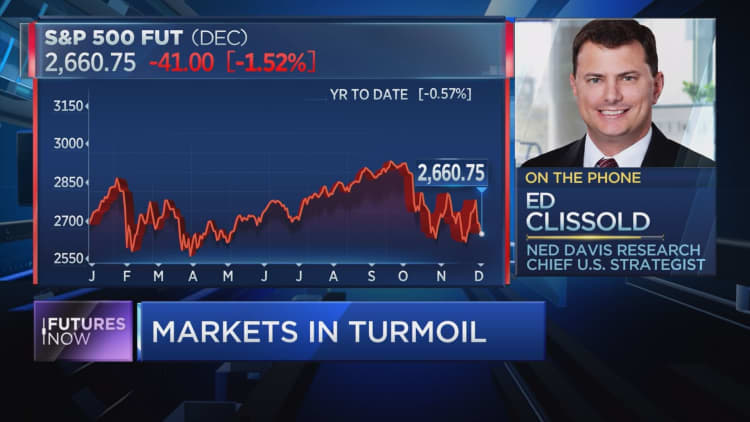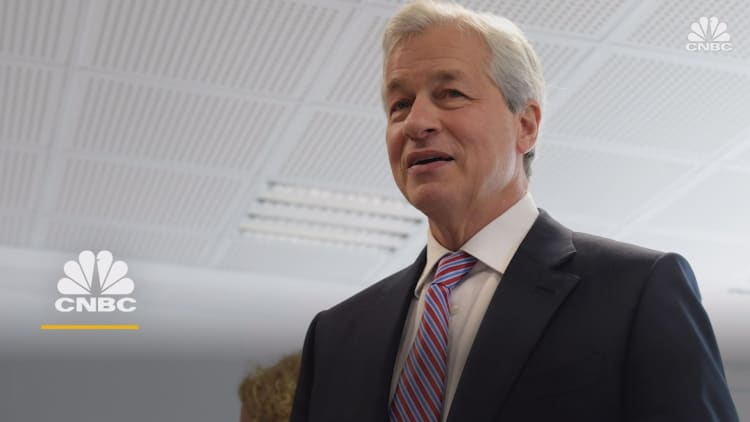
Stocks closed well off their session lows on Thursday after news broke that the Federal Reserve could tighten monetary policy at a slower pace than previously expected.
The Wall Street Journal reported the central bank is considering whether to signal a wait-and-see approach to rate hikes at its upcoming meeting this month. The report said Fed officials do not know what their next move on rates will be after December.
"What this week and a half shows is an extraordinary sensitivity to headlines, more so than usual," said Delores Rubin, senior equities trader at Deutsche Bank Wealth Management. "It's been very difficult to navigate the waters so far."
The Dow Jones Industrial Average closed 79.40 points lower at 24,947.67 after plunging nearly 800 points, while the closed 0.15 percent lower at 2,695.95. The Nasdaq Composite erased its losses, closing 0.4 percent higher at 7,188.26 as Amazon, Netflix and Alphabet all rose more than 1 percent.
Stocks initially fell sharply as continuing fears over U.S.-China trade relations and concern over a possible economic slowdown kept investors on edge.
"There's concern that the trade deal is not as good as [President Donald] Trump said it was," said Mark Esposito, CEO of Esposito Securities. "Recession fears are also settling into the market."
"It's definitely safer to be in cash right now," Esposito said. "I don't think the fall is over."
Trade fears ratcheted up after news broke Wednesday that Huawei CFO Meng Wanzhou was arrested by Canadian authorities in Vancouver, where she faces extradition to the U.S. The arrest — which took place Dec. 1 — decreases the likelihood that a permanent U.S.-China trade deal will be reached. Huawei is one of the largest mobile phone makers in the world.
News of Meng's arrest comes after President Donald Trump and Chinese President Xi Jinping agreed to hold off on implementing additional tariffs on each other's goods. After an initial rally on Monday, stocks have suffered as the Trump administration's comments on details of the deal have been inconsistent.

News of the arrest contributed to a volatile overnight session in the U.S. stock futures market. When futures opened overnight, there was an initial plunge lower on heavy volume which caused the exchange to halt trading. The CME Group said in a statement that "equity index futures and options markets paused intermittently following this evening's open due to volatility."
"Unfortunately until we get new news the market continues to be a cauldron of concerns causing caution with investors," said Art Hogan, B. Riley FBR's chief market strategist. "With the combination of he said Xi said on China trade, a fear of an economic slowdown in 2019, and the slow trickle of Mueller investigation reports coming out, it is not at all surprising to see a buyer's strike in the after-hours market."
Fears of a potential slowdown in economic growth also pushed stocks lower. On Monday, the yield on the three-year Treasury note surpassed its five-year counterpart. That bond-market phenomenon, known as a yield-curve inversion, is seen as a recession signal. But typically the recession doesn't come until years after, and many traders won't see the inversion as official until the two-year yield rises above the 10-year yield.
Shares of major banks J.P. Morgan Chase, Citigroup and Bank of America all closed lower by more than 1.5 percent on Thursday.

"The plunge in bond yields … tells us that unlike October, this is a true risk-off move," said Ed Clissold, chief U.S. strategist at Ned Davis Research Group. "So while it is likely going to get worse before it gets better, the market action is getting closer to the panic selling seen as the market tries to find a bottom."
Thursday's moves come after the market was closed Wednesday as the nation remembered former President George H.W. Bush. The closure may have added to investor anxiety. On Tuesday, the Dow plunged 799 points.
Apple's stock dropped 1.1 percent after UBS said in a note it sees the weakest "purchase intent" for the iPhone in five years. The bank cut its 12-month price target on Apple to $210 from $225.
The U.S. economy added 179,000 private jobs in November, below an estimate of 195,000, according to a report from ADP and Moody's Analytics. The report comes ahead of the government's monthly jobs report, which is scheduled for release Friday morning.
WATCH: Jamie Dimon blames trade uncertainty for market volatility

— CNBC's Tom Franck contributed to this report.
Clarification: This story has been updated to make it clear that Huawei CFO Meng Wanzhou was arrested on Dec. 1.

